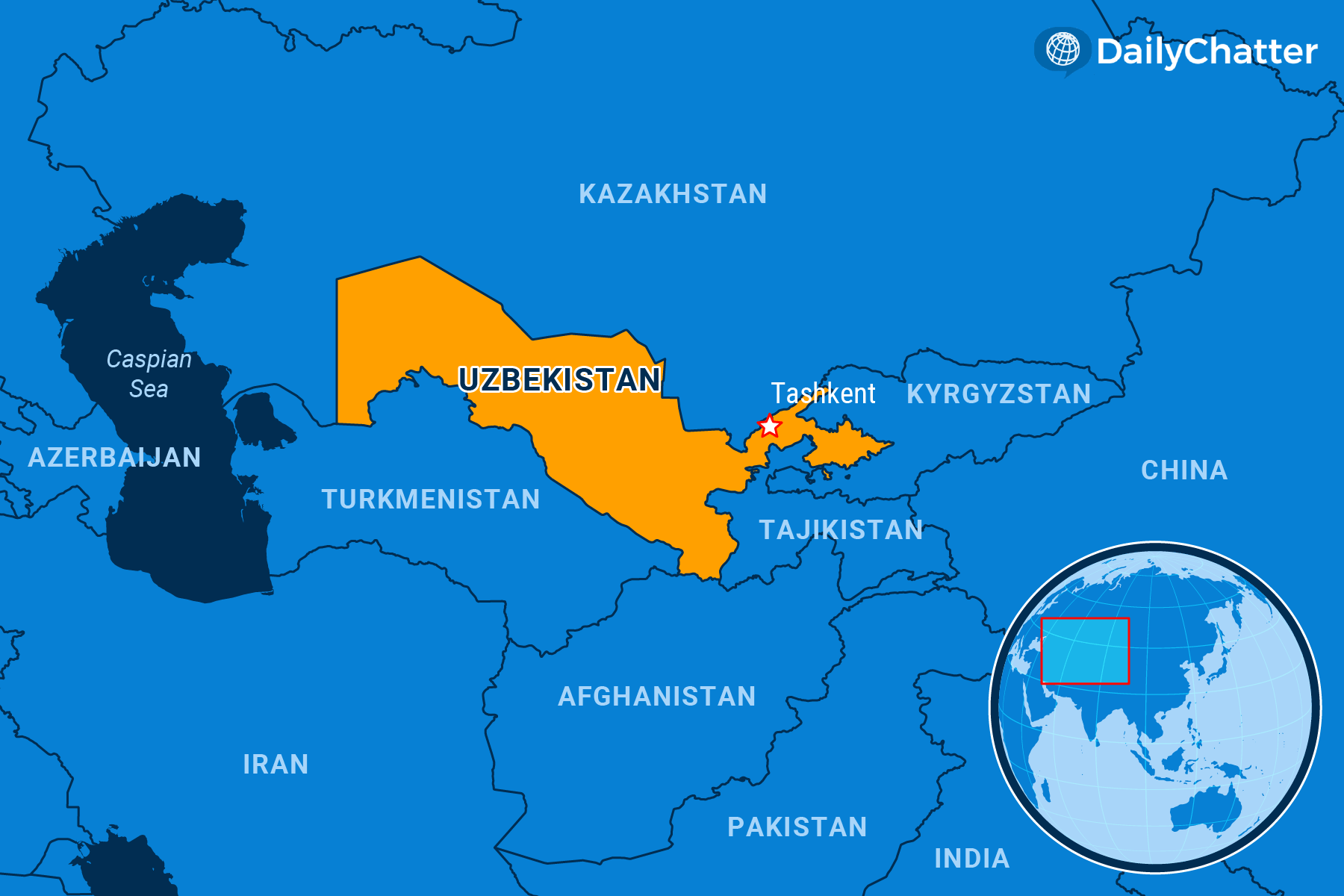The World Briefly
July 10, 2023Undisputed
Uzbekistan

|
Listen to Today's Edition
|
Preliminary results indicate Uzbekistan’s incumbent president Shavkat Mirziyoyev has been reelected with a towering 87.1 percent of ballots cast in a vote that most analysts believed was a foregone conclusion, Radio Free Europe reported.
Sunday’s early polls come months after Uzbeks approved in a referendum a change to the constitution allowing the president to serve two more terms and increase his tenure in office from five to seven years, Al Jazeera reported. The amendments mean that Mirziyoyev could stay in power until 2037.
Political observers noted that Mirziyoyev faced three relatively unknown candidates who remained largely silent during the campaigning from which he was long expected to win a third term.
Mirziyoyev initially served as the country’s prime minister under the hardline rule of his predecessor, former President Islam Karimov.
First elected in 2016, Mirziyoyev has portrayed himself as a reformer and promised to open Uzbekistan – a tightly-controlled former Soviet republic – to foreign investment and tourism.
The president has released political prisoners detained under Karimov and ended forced labor in the country’s cotton fields. Human rights groups have welcomed Mirziyoyev’s changes but noted that there is still room for improvement.
One of the main issues is the lack of real opposition against the government.
The Organisation for Security and Cooperation in Europe (OSCE) said the campaign has been “low-key, mirroring (the) lack of opposition to the incumbent.”
Mirziyoyev’s campaign has mainly focused on the economy and education, with the incumbent vowing to double Uzbekistan’s gross domestic product to $160 billion in the coming years.
Even so, Uzbekistan and other Central Asian nations are dealing with the collateral damage from Western sanctions imposed against their traditional trading partner Russia over the war in Ukraine.
Once an energy exporter, Uzbekistan now consumes more oil and gas than it produces. It has been buying hydrocarbons from Russia, benefiting from Moscow’s decision to divert exports away from Western markets.
Not already a subscriber?
If you would like to receive DailyChatter directly to your inbox each morning, subscribe below with a free two-week trial.
Support journalism that’s independent, non-partisan, and fair.
If you are a student or faculty with a valid school email, you can sign up for a FREE student subscription or faculty subscription.
Questions? Write to us at hello@dailychatter.com.

